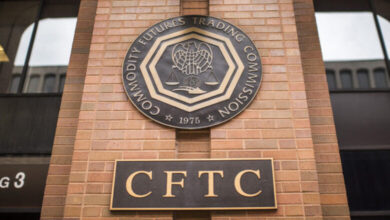Singapore Draws the Line: No License, No Crypto Business

Singapore is tightening its regulatory grip on the digital asset sector by mandating that all crypto firms operating from the city-state and serving overseas clients must secure a license by June 30 or cease operations entirely.
The Monetary Authority of Singapore (MAS) confirmed the move in a policy statement released May 30, citing growing concerns over money laundering, terrorism financing, and reputational risks. The decision marks the full enforcement of Section 137 of the Financial Services and Markets Act (FSMA), empowering MAS to oversee digital token service providers (DTSPs) that conduct business from Singapore, even if they don’t serve local customers.
“There will be no transitional arrangement,” MAS stated, signaling that firms that remain non-compliant past the deadline could face criminal penalties.
The new rules affect companies incorporated in Singapore or with staff based there, even if their services are exclusively targeted at foreign users. MAS said the four-week notice period provided ample time for firms to adjust and comply.
No Exceptions for Cross-Border Services
The decision follows public consultation initiated in October 2024, where the regulator sought input on how to handle digital asset firms operating across borders. While most respondents supported extending the licensing framework, several called for carve-outs for proprietary traders, OTC desks, and entities using foreign infrastructure. MAS rejected these proposals, emphasizing the need for a consistent, activity-based regulatory approach that closes potential loopholes.
“Licensing is essential to managing cross-border risks,” the regulator said, stressing the importance of aligning with international anti-money laundering standards. The borderless nature of crypto, MAS warned, can be exploited by illicit actors if left unchecked.
Firms falling under the new mandate must now meet several compliance requirements, including a minimum base capital of SGD 250,000 (approx. USD 185,000), robust customer due diligence processes, adherence to the Financial Action Task Force’s (FATF) Travel Rule, and strict cybersecurity protocols.
The MAS also cautioned that freelancers and independent consultants working with overseas crypto firms could be subject to licensing, depending on their level of involvement and whether their activities constitute regulated services under local law.
Global Crackdowns Intensify
Singapore’s stance echoes a broader trend of tightening global oversight in the crypto industry. Just last month, Australia’s financial watchdog AUSTRAC fined Melbourne-based exchange Cointree over $75,000 for delays in filing suspicious transaction reports, underscoring the rising enforcement momentum among regulators worldwide.
As of early June, MAS has issued 33 licenses for digital payment token services in Singapore. Recipients include industry heavyweights such as Coinbase and Anchorage. Cumberland SG, the regional arm of U.S.-based trading firm Cumberland, received in-principle approval earlier this year but is still awaiting full authorization.
By pressing ahead with licensing rules for offshore crypto operations, Singapore is sending a clear message: firms can no longer use the city-state as a base for unregulated international activity. The regulatory perimeter has been redrawn and the clock is ticking.





